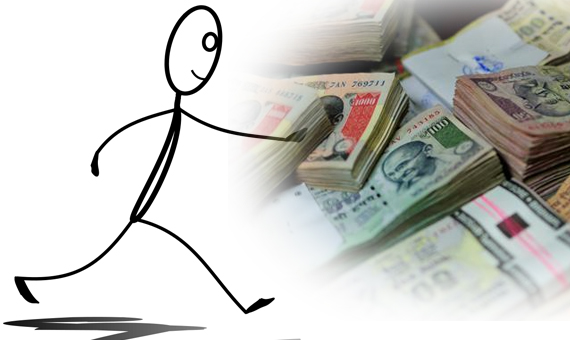 New Delhi, Oct 16: People in India are increasingly shying away from taking bank loans on account of economic slowdown and scepticism arising out of job uncertainty, a survey by industry body Assocham said.
New Delhi, Oct 16: People in India are increasingly shying away from taking bank loans on account of economic slowdown and scepticism arising out of job uncertainty, a survey by industry body Assocham said.
"In the wake of slowdown, while industrial growth and services are getting impacted, job uncertainty among the young spenders is working as a big dampener," the survey said.
Individual borrowers are adopting an extremely conservative approach when it comes to taking loans from banks against fixed deposits or shares and bonds.
According to the banking data, loans against fixed deposits have declined by 1.6 per cent in the current fiscal as against a growth of 20 per cent between August 2012 and August 2013.
Besides, credit card users are also avoiding taking loans as the interest rates charged on outstanding payments are prohibitively high. Those who have already taken loans are now more cautious and resorting to timely payments of their dues to avoid penalties.
"There is a feeling that credit card outstanding payments result in debt traps for the card-holders," the survey said.
A similar trend has been witnessed in individuals or entities seeking bank loans in return for mortgaging shares and bonds.
The amount deployed so far in the current fiscal under this head has shown a decline of 6.6 per cent, as against a growth of 8.8 per cent in the previous year, the survey said.
The reason cited for the cautious approach being adopted by borrowers as well as banks is the prevailing volatility in the share market.
"They (banks) perceive as risk great volatility in share prices, particularly if the share price of the mortgaged security has seen a sharp decline. The issue of Mark-to-Market risks act as hindrance," the survey said.
Besides, high interest rates offered by banks is also one of the main reasons for the trend, since deposit rates have been recently revised upwards in the wake of tight liquidity position.
Moreover, banks are also unwilling to lend to large corporates which are facing the liquidity problems arising from drying up of the corporate deposit (CDs) markets, according to the survey.
"Banks, bitten by a large increase in their NPAs (non-performing assets), are not too willing to lend to big corporates for meeting their working capital needs and want the companies to use the CD market, which, unfortunately, has gone dry," the survey said.





Comments
Add new comment